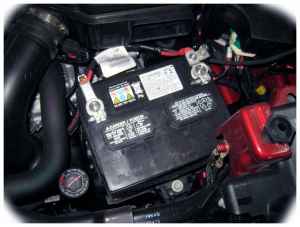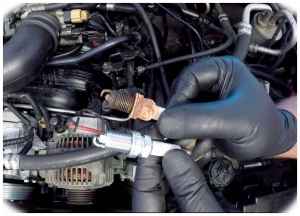Car shaking in cold weather can be a frustrating experience, as it can lead to decreased power and acceleration. It’s important to understand what causes car shaking in cold weather so that you can take the necessary steps to prevent it. This article will discuss the causes of car shaking in cold weather and how you can fix it. We’ll also provide some prevention tips that you should follow to avoid car shaking in the future.
Causes of Car Shaking in Cold Weather
There are several potential causes of car shaking during cold temperatures:
-
Engine misfires: An engine misfire occurs when one or more cylinders fail to ignite fuel correctly due to a problem with your spark plugs, spark plug wires, or fuel injectors. This can cause your engine to vibrate or shake, especially when accelerating.
-
Battery problems: If your battery is weak or failing due to age or wear and tear, it may not be able to hold enough charge during cold temperatures and may cause your vehicle’s engine to vibrate as well. See here the new Battery for Jeep Wrangler.
-
Frozen fuel lines: If the air temperature is below freezing for an extended period, condensation from moisture in the air may freeze inside your fuel lines, blocking the fuel flow to your engine and causing it to misfire.
-
Worn-out tires: Worn-out tires can cause your vehicle’s suspension system to become unstable, resulting in vibration or shaking when you accelerate or drive over bumps.
Symptoms of Car Shaking in Cold Weather
If your car is shaking due to cold temperatures, there are several symptoms that you might experience:
-
Engine vibration: Your engine may vibrate or shake more than usual during cold temperatures. This is usually the most noticeable symptom and can be felt throughout your vehicle’s cabin.
-
Engine light turns on: If your car is shaking due to an engine misfire, the check engine light may turn on as a result. Pay attention to this warning sign and take care of any underlying issues as soon as possible.
-
Decreased power and acceleration: If one or more cylinders aren’t firing correctly, it may cause a decrease in power and acceleration when you’re driving. This can make driving difficult during cold weather conditions.
How to Fix Car Shaking in Cold Weather
There are several steps that you can take if your car is shaking due to cold temperatures:
-
Check the battery: If you suspect that your battery is weak or failing, you should take it to an auto parts store and get it tested. If the test reveals that your battery needs to be replaced, make sure to do so as soon as possible.
-
Replace the spark plugs: If your spark plugs are worn out or damaged, they may not be able to ignite fuel correctly and could cause engine misfires. If this is the case, you should replace them with new ones as soon as possible. Here are the Best Spark Plugs for Jeep.
-
Thaw the frozen fuel lines: If condensation from moisture in the air has frozen inside your fuel lines, you can use a hair dryer or heat gun to thaw them out. Make sure not to get too close to either of these devices, and always wear protective gloves when handling them.
-
Replace worn-out tires: If your tires are worn out or damaged, they can cause a vibration when driving over bumps or accelerating. Make sure to check their tread depth regularly and replace them if necessary.
Prevention Tips to Avoid Car Shaking in Cold Weather
There are several prevention tips that you should follow to avoid car shaking during cold temperatures:
-
Keep the battery charged: Make sure that it is in good condition and fully charged. You can do this by running your engine for at least 15 minutes every few days during cold temperatures.
-
Store the vehicle in a warm place: If you’re able to, store your car inside a warm garage or shed during the winter months to prevent any potential damage from cold temperatures.
-
Regular maintenance: Make sure that you schedule regular maintenance for your car, such as oil changes, tire rotations, and engine tune ups. This will help keep all of its components in good condition and prevent potential problems.
Conclusion
Car shaking in cold weather can be an annoying problem to deal with, but thankfully it’s usually easy to fix if you know what’s causing it. Make sure you take the necessary steps to prevent car shaking by checking your battery, replacing spark plugs, thawing frozen fuel lines, and replacing worn-out tires if necessary. Also, follow the prevention tips listed above to avoid car shaking in the future!

 Battery problems: If your battery is weak or failing due to age or wear and tear, it may not be able to hold enough charge during cold temperatures and may cause your vehicle’s engine to vibrate as well. See here the new
Battery problems: If your battery is weak or failing due to age or wear and tear, it may not be able to hold enough charge during cold temperatures and may cause your vehicle’s engine to vibrate as well. See here the new  Replace the spark plugs: If your spark plugs are worn out or damaged, they may not be able to ignite fuel correctly and could cause engine misfires. If this is the case, you should replace them with new ones as soon as possible. Here are the
Replace the spark plugs: If your spark plugs are worn out or damaged, they may not be able to ignite fuel correctly and could cause engine misfires. If this is the case, you should replace them with new ones as soon as possible. Here are the
Add Comment